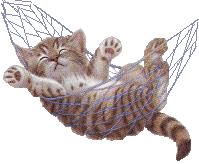UA - 47062478 - 1
"If you're going to do something tonight that you'll be sorry for tomorrow morning, sleep late."
- Henny Youngman
The What and Why of a "Sleep Study"

The What and Why of a "Sleep Study"
After a workout your muscles may be a little sore, depending on the intensity of your exercising. High intensity training (HIT) causes some damage to the muscle fibers. There may be some fibers that are torn, some microscopic bleeding, and maybe soreness of the muscles directly affected by the exercises performed. Sounds bad, huh? Not really. When you sleep your muscles heal, regenerate, and are strengthened. In other words, they are slightly firmer and healthier than before the workout. And the better and deeper your sleep is, the faster you progress in your fitness goals.
There are a number of problems serious enough to reduce the time and depth of your sleep. Just as you improve your form and intensity of your exercises, you should try to improve your sleeping period. Sleep studies are tests that record what happens to your body during sleep. They are performed in specialized rooms equipped with medical devices that record several body functions during sleep. Thus, brain activity, eye movement, oxygen and carbon dioxide blood levels, heart rate and rhythm, breathing rate and rhythm, the flow of air through your nose and mouth, snoring, body muscle movements and chest and belly movements are all recorded. This is an over-night visit to some sleep lab such as in the hospital or sleep lab privately owned by a doctor or group of doctors. Polysomnography is this type of sleep study and is usually recommended in cases of sleep apnea, seizure disorders, periodic limb movement disorders, insomnia, and narcolepsy.
Some of the sleep studies can help diagnose or rule out a number of disorders and they include:
- sleep apnea
- periodic limb movement disorders related to sleep, including twitching of the feet, arms, or legs during sleep
- seizure disorders
- insomnia caused by depression, hunger, physical discomfort, stress or some other problem
- extreme daytime tiredness, such as narcolepsy
- bruxism or grinding of the teeth during sleep
- shift work sleep disorder because of working period changes
- stages of sleep, non-rapid eye movement (NREM) and rapid eye movement sleep (REM)
- sleepwalking, night, terrors, or bed-wetting, each one a nighttime behavior problem
So after reading some or all of the above, how about some shut-eye?

No comments:
Post a Comment